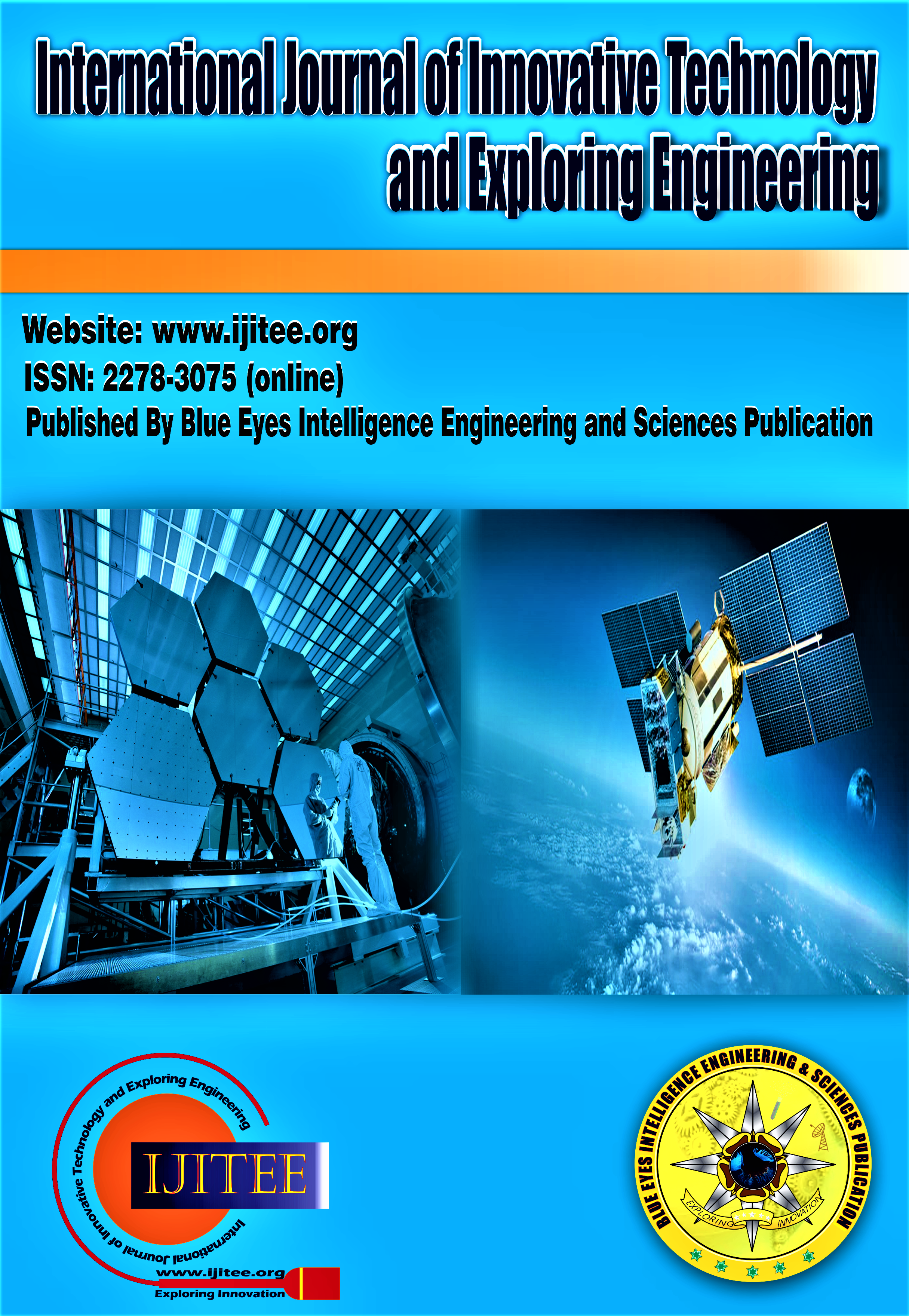IoT-Based Social Device Network with Cloud Computing Architecture: A Systematic Review
Main Article Content
Abstract
The Internet of Things (IoT) has redefined how devices interact, enabling a transition from isolated machine communication to dynamic, intelligent networks known as Social Device Networks (SDNs). These networks comprise interconnected devices that establish relationships based on context, proximity, functionality, or user preferences. With the growing need for efficient data handling, resource sharing, and real-time analytics, cloud computing has emerged as a key enabler of scalable, flexible, and cost-effective infrastructures for Internet of Things (IoT)- based Software-Defined Networks (SDNs). This systematic review examines the integration of Internet of Things (IoT)- based Software-Defined Networks (SDNs) with cloud computing architecture, focusing on their structural designs, data communication protocols, service models, and security mechanisms. By analysing scholarly articles published between 2013 and 2024—primarily from IEEE and other reputable databases—this paper synthesizes key findings, technological trends, and challenges faced in deploying such systems. We examine the evolution from traditional cloud-based systems to hybrid models that incorporate fog and edge computing to reduce latency and improve responsiveness in time-critical applications. The review also emphasizes the importance of secure communication protocols such as MQTT, CoAP, and AMQP for seamless device collaboration within social networks. In addition to identifying current gaps in security, privacy, and interoperability, this review highlights promising applications in healthcare, smart cities, industrial automation, and transportation. The convergence of AI with SDNs, along with the deployment of next-generation networks such as 5G, is expected further to enhance the performance and scalability of these systems. This paper offers a comprehensive foundation for future research and Development in IoT-enabled social device ecosystems powered by cloud computing.
Downloads
Article Details
Section

This work is licensed under a Creative Commons Attribution-NonCommercial-NoDerivatives 4.0 International License.
How to Cite
References
Atzori, L., Iera, A., & Morabito, G. (2014). From “smart objects” to “social objects”: The next evolutionary step of the Internet of Things. IEEE Communications Magazine, 52(1), 97–105. DOI: https://doi.org/10.1109/MCOM.2014.6710070
Botta, A., de Donato, W., Persico, V., & Pescapé, A. (2016). Integration of cloud computing and Internet of Things: A survey. Future Generation Computer Systems, 56, 684–700. DOI: https://doi.org/10.1016/j.future.2015.09.021
Gubbi, J., Buyya, R., Marusic, S., & Palaniswami, M. (2013). Internet of Things (IoT): A vision, architectural elements, and future directions. Future Generation Computer Systems, 29(7), 1645–1660. DOI: https://doi.org/10.1016/j.future.2013.01.010
Hassan, R., Rehmani, M. H., & Chen, J. (2019). Privacy and security in smart grid: A survey. IEEE Communications Surveys & Tutorials, 21(4), 3969–4002. DOI: https://doi.org/10.1109/COMST.2019.2916142
Khan, R., Khan, S. U., Zaheer, R., & Khan, S. (2012). Future Internet: The Internet of Things architecture, possible applications, and key challenges. In Proceedings of the 10th International Conference on Frontiers of Information Technology (pp. 257–260). IEEE.
DOI: https://doi.org/10.1109/FIT.2012.53
Li, S., Xu, L. D., & Zhao, S. (2015). The Internet of Things: A survey. Information Systems Frontiers, 17, 243–259.
DOI: https://doi.org/10.1007/s10796-014-9492-7
Mahmoud, R., Yousuf, T., Aloul, F., & Zualkernan, I. (2015). Internet of Things (IoT) security: Status, challenges, and prospective measures. In 2015, 10th International Conference for Internet Technology and Secured Transactions (ICITST) (pp. 336–341). IEEE. DOI: https://doi.org/10.1109/ICITST.2015.7412073
Miorandi, D., Sicari, S., De Pellegrini, F., & Chlamtac, I. (2012). Internet of Things: Vision, applications, and research challenges. Ad Hoc Networks, 10(7), 1497–1516. DOI: https://doi.org/10.1016/j.adhoc.2012.02.016
Patel, K. K., & Patel, S. M. (2016). Internet of Things (IoT): Definition, characteristics, architecture, enabling technologies, applications & future challenges. International Journal of Engineering Science and Computing, 6(5), 6122–6131. https://www.researchgate.net/publication/330425585
Perera, C., Zaslavsky, A., Christen, P., & Georgakopoulos, D. (2014). Context-aware computing for the Internet of Things: A survey. IEEE Communications Surveys & Tutorials, 16(1), 414–454. DOI: https://doi.org/10.1109/SURV.2013.042313.00197
Ray, P. P. (2018). A survey on Internet of Things architectures. Journal of King Saud University – Computer and Information Sciences, 30(3), 291–319. DOI: https://doi.org/10.1016/j.jksuci.2016.10.003
Roman, R., Najera, P., & Lopez, J. (2013). Securing the Internet of Things. Computer, 44(9), 51–58.
DOI: https://doi.org/10.1109/MC.2011.291
Stojmenovic, I., & Wen, S. (2014). The fog computing paradigm: Scenarios and security issues. In Proceedings of the 2014 Federated Conference on Computer Science and Information Systems (pp. 1–8). IEEE. DOI: https://doi.org/10.15439/2014F503
Tao, F., Zuo, Y., Xu, L. D., & Zhang, L. (2014). IoT-based intelligent perception and access of manufacturing resource toward cloud manufacturing. IEEE Transactions on Industrial Informatics, 10(2), 1547–1557. DOI: https://doi.org/10.1109/TII.2014.2306391
Varghese, B., & Buyya, R. (2018). Next generation cloud computing: New trends and research directions. Future Generation Computer Systems, 79, 849–861. DOI: https://doi.org/10.1016/j.future.2017.09.020
Wu, M., Lu, T. J., Ling, F. Y., Sun, J., & Du, H. Y. (2010). Research on the architecture of the Internet of Things. In 2010, the 3rd International Conference on Advanced Computer Theory and Engineering (ICACTE) (Vol. 5, pp. 484–487). IEEE. DOI: https://doi.org/10.1109/ICACTE.2010.5579493
Yang, Y., Wu, L., Yin, G., Li, L., & Zhao, H. (2017). A survey on security and privacy issues in the Internet of Things. IEEE Internet of Things Journal, 4(5), 1250–1258. DOI: https://doi.org/10.1109/JIOT.2017.2694844
Zhang, Y., Deng, R. H., & Liu, J. K. (2016). Towards secure and privacy-preserving data sharing in e-health systems via consortium blockchain. IEEE Transactions on Industrial Informatics, 14(8), 3346–3354. DOI: https://doi.org/10.1007/s10916-018-0995-5
Chaware, S. M., Makashir, C., Athavale, C., Athavale, M., & Baraskar, T. (2020). Stress Detection Methodology based on Social Media Network: A Proposed Design. International Journal of Innovative Technology and Exploring Engineering, 9(3), 3489–3492.
DOI: https://doi.org/10.35940/ijitee.b7537.019320
Srinivas, A., & Velusamy, R. L. (2019). Community Detection Algorithm in Social Networks through Iterative Analysis based on Degree of Nodes. International Journal of Engineering and Advanced Technology, 9(1), 1892–1900. DOI: https://doi.org/10.35940/ijeat.a1021.109119
Nirmala B, S.P. Chokkalingam, Identification of Fake Accounts for Making Trust on Network using Machine Learning. (2019). International Journal of Recent Technology and Engineering, 8(2S3), 796–800. DOI: https://doi.org/10.35940/ijrte.b1148.82s319
Radhamani, V., & Dalin, G. (2019). Significance of Artificial Intelligence and Machine Learning Techniques in Smart Cloud Computing: A Review. International Journal of Soft Computing and Engineering, 9(3), 1–7. DOI: https://doi.org/10.35940/ijsce.c3265.099319
Singh, H., & Marwaha, C. (2019). Fog Computing: Terminologies, Architecture and Challenges. International Journal of Innovative Science and Modern Engineering (IJISME), 6(3), 7–13. DOI: https://doi.org/10.35940/ijitee.c1162.116319





